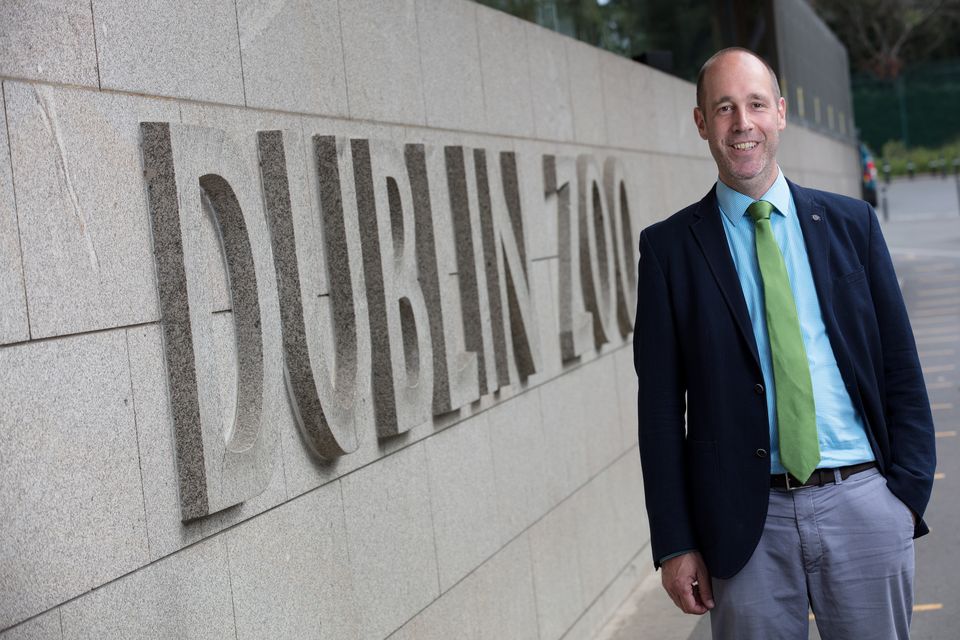All Asian elephants in the herd at Dublin Zoo have been given a clean bill of health following an outbreak of elephant endotheliotropic herpesvirus (EEHV) this summer which led to the deaths of two young elephants.
An eight-year-old Asian elephant named Avani and a seven-year-old elephant named Zinda both died due to the disease, with all others in the herd also testing positive for the virus.
Now, the staff are relieved that the remaining elephants are healthy, and are thankful that so many contributed to saving them.
Aung Bo, who arrived in Dublin Zoo in June, has now finally joined the herd.
“He seems to be having a lot of fun. Five days ago, we let him in with the three females. There was a bit of pushing and shoving initially, there was lots of excitement in the females as well,” director of Dublin Zoo Dr Christoph Schwitzer said.
“Asha in particular took to him very well. She’ll be the one who is coming into oestrus (in heat) quite soon, and I’d say we are quietly hopeful for elephant calves in the future again.
“We certainly want to continue our very successful breeding programme. We’ve bred nine calves here over the last 15 years or so, and that’s a very good track record.
“I’m very hopeful that we can continue that into the future. Dublin Zoo-born elephants are living in Australia, in America, in continental Europe and hopefully there are more too.
“Aung Bo originally came from Holland, and he was in Cologne for a while as well as London. Once a bull has sired enough offspring in one place, he moves on, and that’s the same in the wild. He’ll move on to another herd and father some offspring elsewhere.”
Dr Schwitzer said that the staff are relieved now because the elephant habitat had been “turned into an intensive care unit”.
He described the situation as “bittersweet” with the loss of two elephants, but they’re thankful the remaining ones are alive and well.
Dublin Zoo resident vet Dr Emma Flynn said staff put in thousands of hours treating the elephants.
“It was hard on the team. We lost two relatively young elephants, a seven and an eight year old and that’s terrible, that’s tragic,” he said.
“Ultimately, lots of treatment was going on, and it was physically and mentally exhausting. Now we are out of this, and we can just breathe a sigh of relief.
It was really, really hard going but to come out the other side and to see them all doing so well and to see Aung Bo integrated into the herd, it does lift your heart a little bit
“We are now at a stage where we can finally say we are all out of the woods. We have four elephants now. We’ve got Aung Bo from Chester Zoo, and we have our three females, Dina, Samiya and Asha.
“We can say we saved the remaining elephants, they all tested positive at different stages and it’s a bit like Covid and how some people test positive and die.
“Other people don’t get a single symptom. It’s also an age-related thing, so this virus affects younger elephants, it’s much more deadly to them compared to the older elephants.
“One silver lining in all of this, is when we went to the press, there were a lot of people who actually wrote in and said ‘we are seeing the situation there at Dublin and we might be able to help’ – we talked with a few scientists who researched different areas of biology, animal health and biochemistry.
“It came with some very good thoughts from their own research that may well in the future lead to a more effective treatment for this virus, which would be absolutely brilliant.”
Director of Dublin Zoo Dr Christoph Schwitzer said losing two elephants was hard on the team.
Dublin Zoo resident vet Dr Emma Flynn also thanked the public for their support, which was a “huge source of strength and morale to the zoo team as they navigated one of the toughest periods the zoo has ever faced,” according to the zoo.
“We ate here, we slept here. We put in hundreds and thousands of hours during the time the elephants had the disease. Unfortunately, we had lost two young elephants. We saved Samiya, and Asha and Dina are doing well,” Dr Flynn said.
“It was really, really hard going but to come out the other side and to see them all doing so well and to see Aung Bo integrated into the herd, it does lift your heart a little bit.
“What we’ve learned here will further our understanding and hopefully the research done here will lead to some treatments that can help towards managing the disease someday.”

